#miklós rózsa
Explore tagged Tumblr posts
Text
youtube
Almost at the moment He died, I heard Him say, "Father, forgive them, for they know not what they do."
"Overture", "Love Theme", and "Parade of the Charioteers" from Ben-Hur (1959) – composed and conducted by Miklós Rózsa; performed by the Pittsburgh Symphony Orchestra
"Overture" (0:00) "Love Theme" (3:54) "Parade of the Charioteers" (7:18)
Born in Budapest to Hungarian Jewish parents, Miklós Rózsa was one of many Eastern European musicians and composers who found a (mostly) welcoming place for their work during the height of the Studio System in Hollywood. Rózsa bounced between studios, despite directors' and executives' rich appreciation of his work. In 1948, he signed his only long-term contract at Metro-Goldwyn-Mayer. Using his extensive research for his score to the Roman epic Quo Vadis (1951) as a base, he jumped at the chance when Ben-Hur – a religious epic based on Lew Wallace's 1880 novel Ben-Hur: A Tale of the Christ – was there for the taking.
Throughout what remains the longest score to any theatrically-released film, Rózsa composed musical identities for Judean, Christian, Macedonian, Roman, and other identities, as well as motifs for certain ideas and themes. It runs the gamut of rousing fanfares, action music, romantic themes, ethereal religious music, and more. With a runtime 212 minutes including an overture, intermission, and entr'acte, the colossal Ben-Hur benefits deeply from one of the finest scores ever composed for a film, and certainly Miklós Rózsa's greatest work. The entire score was one of the few pieces of MGM music that survived a 1969 decision to destroy the entire studio music library.
At the 32nd Academy Awards, Ben-Hur set a record for most Oscars won (tied only with 1997's Titanic and 2003's The Lord of the Rings: The Return of the King) at eleven. Rózsa's win for Original Score was among them, alongside Best Special Effects, Sound Recording, Film Editing, Costume Design, Cinematography (Color), Art Direction (Color), Supporting Actor (Hugh Griffith), Actor (Charlton Heston), Director (William Wyler), and Best Picture.
#Ben Hur#Ben-Hur#Miklós Rózsa#Pittsburgh Symphony Orchestra#film score#OST#great film scores#Oscars#31 Days of Oscar
3 notes
·
View notes
Text

[now-playing] - ost - miklós rózsa - fedora - 1979
3 notes
·
View notes
Text

Spellbound (1945, Alfred Hitchcock)
07/09/2024
#spellbound#1945#alfred hitchcock#amnesia#David O Selznick#psychoanalysis#salvador dalí#Diana#giorgio de chirico#Paris#luis buñuel#un chien andalou#L'Age d'Or#Cesare Musatti#Angus MacPhail#ben hecht#La casa del dottor Edwardes#John Palmer#ingrid bergman#notorious#under capricorn#gregory peck#the paradine case#anton chekhov#rhonda fleming#violin#Miklós Rózsa#theremin#Anselmo Ballester#françois truffaut
4 notes
·
View notes
Text
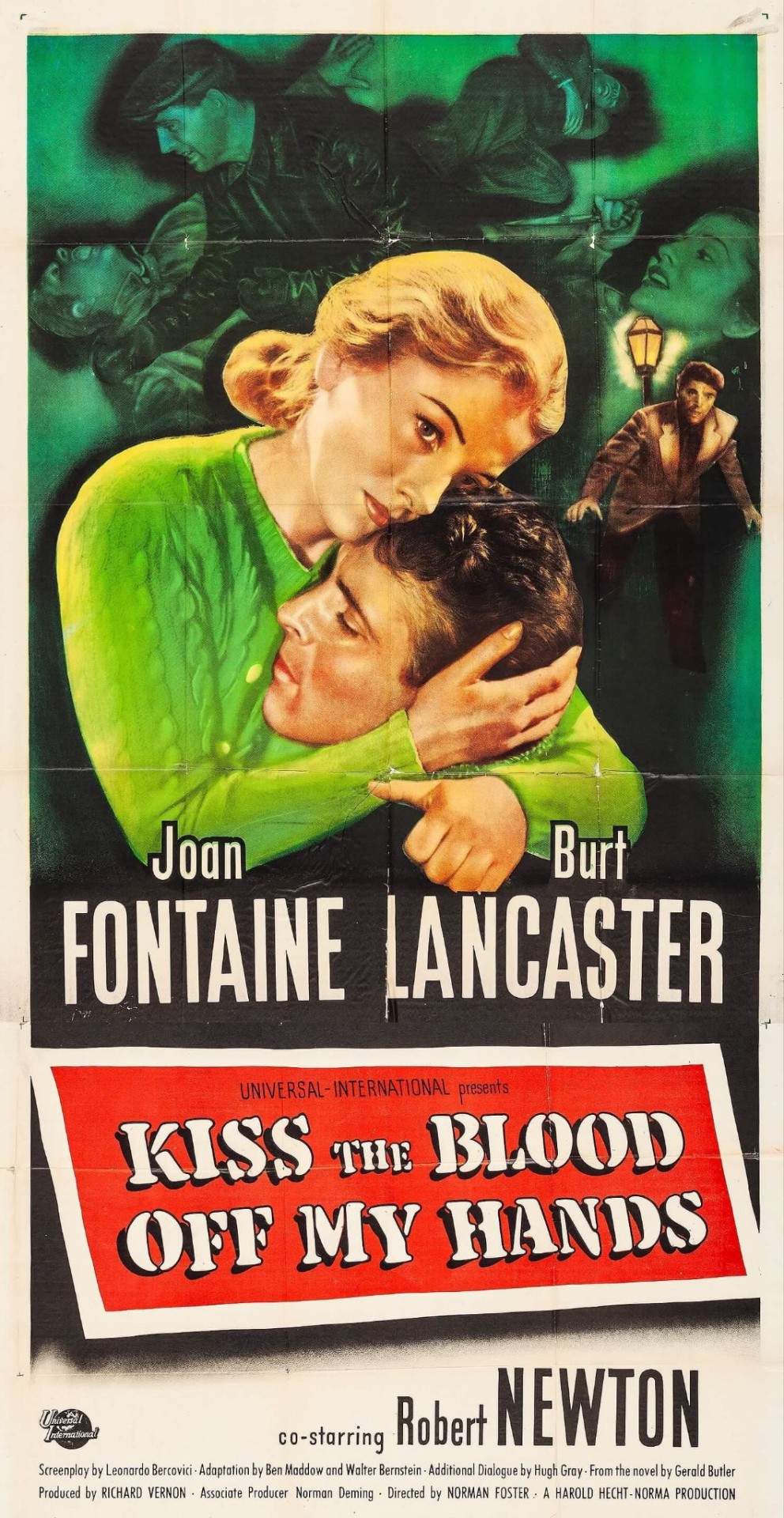


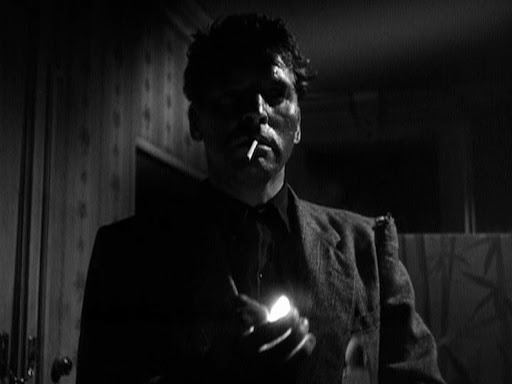

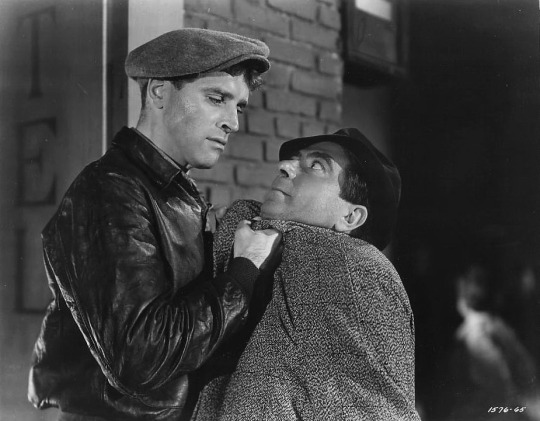

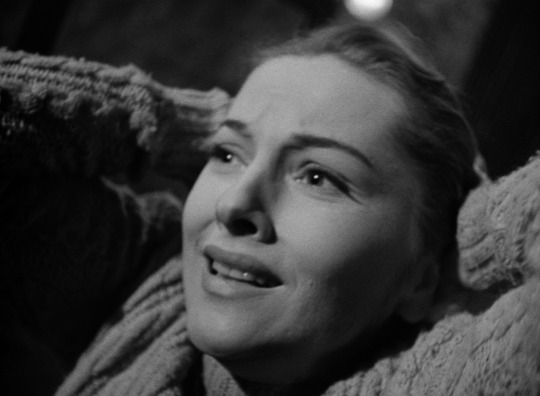
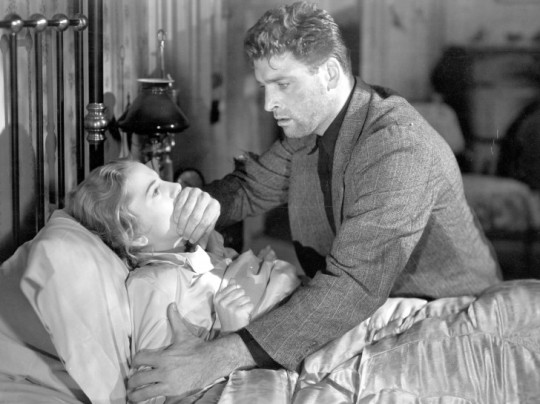
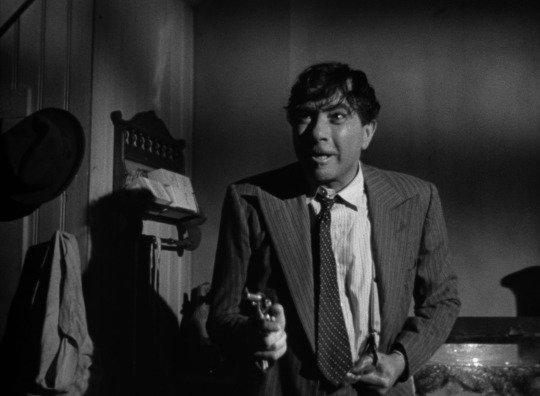
Kiss the Blood Off My Hands (Blood on My Hands, 1948)
"Listen to me. There's nobody else I wanna be with. Nobody else I wanna talk to. What's wrong with that?"
"I'll tell you what's wrong, you're wrong. You're a coward. There was one of him and one of you; he was a much older man, I suppose if you - if you hit a child, you'd say the same thing. What's the matter with you? Why can't you be decent? Why can't you be like everybody else? You're nothing but a cheap, vicious bully."
#kiss the blood off my hands#blood on my hands#film noir#american cinema#1948#norman foster#leonardo bercovici#ben maddow#walter bernstein#joan fontaine#burt lancaster#robert newton#lewis l. russell#aminta dyne#grizelda hervey#jay novello#colin keith johnston#reginald sheffield#miklós rózsa#gerald butler#american depictions of London are always a tricky thing and this is no different; Hollywood sound stages draped in fog and cobbles#(and street organs of course) just don't convince in the same way that simply finding an anonymous bit of city might have. some creaky#artifice aside‚ this is a pretty competent little noir; Lancaster was still a newcomer but this was his first film as a producer too (he#really was an artist in film‚ right from the beginning). the script doesn't always serve Fontaine well‚ but the few good bits she gets she#absolutely seizes onto. it should be no surprise to anyone who's come across his work tho that Bob Newton steals this; he's a minor crook#whose presence is merely an awkward annoyance for most of the film‚ until this amazingly chilling transformation into something altogether#more seedy‚ more threatening and more dangerous in the final act. plotting doesn't offer much new or different and even by 1948 this feels#little overly familiar‚ but Foster does some great work with light and shadow‚ and it all has a very handsome‚ classical look#also: what a great title?? no film could live up to that kind of moniker alas. actually it got the film in some hot water with over zealous#censors‚ including here in the uk where it was released as the slightly less sordid Blood on my Hands
9 notes
·
View notes
Text

. It's a whole different business now. The kids with beards have taken over. They don't need scripts, just give 'em a hand-held camera with a zoom lens.
Fedora, Billy Wilder (1978)
#Billy Wilder#I.A.L. Diamond#William Holden#Marthe Keller#Hildegard Knef#José Ferrer#Frances Sternhagen#Mario Adorf#Stephen Collins#Henry Fonda#Michael York#Hans Jaray#Gottfried John#Gerry Fisher#Miklós Rózsa#Stefan Arnsten#Fredric Steinkamp#1978
17 notes
·
View notes
Text
youtube
A sequence from Alfred Hitchcock's Spellbound showcasing Miklós Rózsa's score
#cinema#alfred hitchcock#ben hecht#john palmer#hilary st george saunders#ingrid bergman#gregory peck#miklós rózsa#miklos rozsa#george barnes#james basevi#hal c. kern#Youtube
21 notes
·
View notes
Text
youtube
Miklós Rózsa (1907-1995) : Sonata for Two Violins, performed by Simone Porter and Blake Pouliot
5 notes
·
View notes
Text
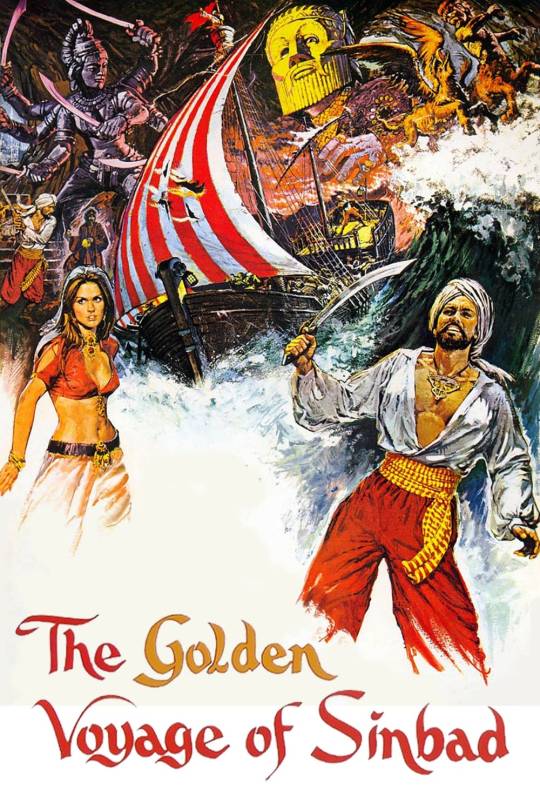
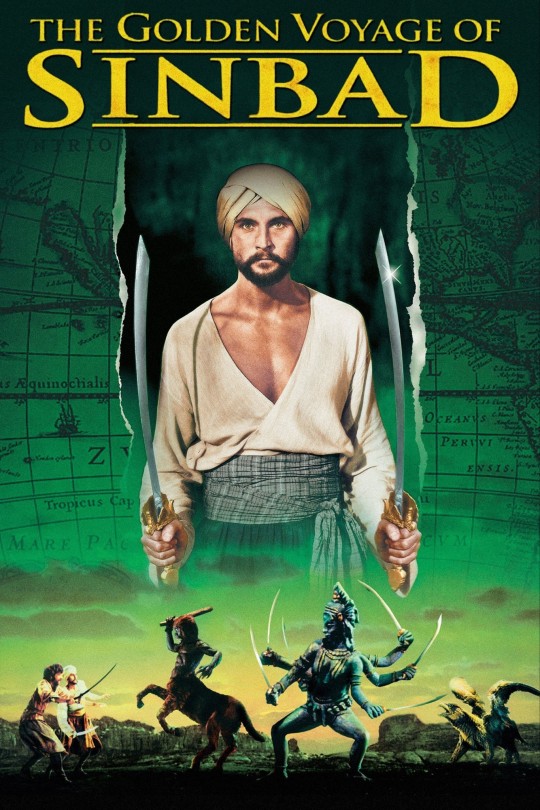

W A T C H I N G
#THE GOLDEN VOYAGE OF SINBAD (1973)#RAY HARRYHAUSEN#Martin Shaw#Grégoire Aslan#John Phillip Law#Caroline Munro#Tom Baker#Douglas Wilmer#Kurt Christian#Takis Emmanuel#David Garfield#Ferdinando Poggi#Aldo Sambrell#Robert Shaw#Gordon Hessler#Gregoire Aslan#FANTASY#ADVENTURE FILM#stop motion#practical effects#action film#Miklós Rózsa#WATCHING
2 notes
·
View notes
Text
The World, the Flesh and the Devil: An Early Example of Existentialist Afrofuturism
The World, the Flesh and the Devil is a fantastic yet underseen film that explores race in the after math of nuclear holocaust, and stars the late great Harry Belafonte. Please give it a watch and check out my review for the film.
Harry Belafonte’s passing has struck a chord within varying circles dependent on your primary artistic outlet of choice. While best known for his calypso music and activism, Belafonte was also an actor with an eclectic body of work. Through fifteen narrative feature films made over six and a half decades, Belafonte worked with major talent, including behind and in front of the camera, often in…
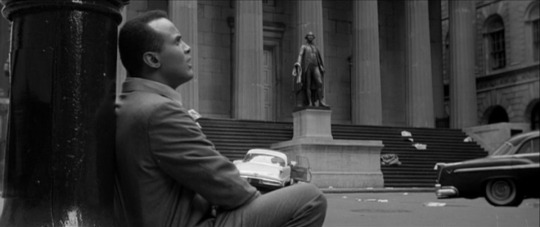
View On WordPress
#1959#Afrofuturism#atomic cinema#Black Panther#Canada Lee#Film Reviews#Francis Lawrence#Harold J. Marzorati#Harry Belafonte#I Am Legend#Inger Stevens#Mel Ferrer#Miklós Rózsa#On the Beach#Paul Robeson#Ryan Coogler#Science Fiction#Sidney Poitier#Stanley Kramer#The World the Flesh and the Devil
7 notes
·
View notes
Text
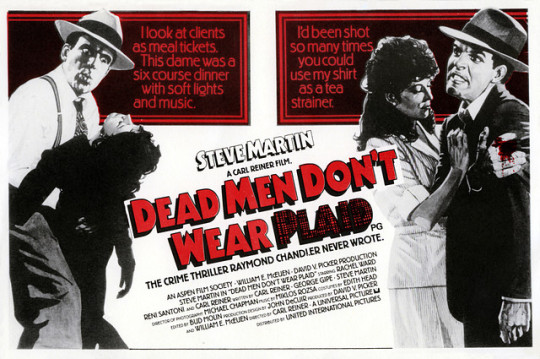
Ein gutes neues Jahr allerseits. Es beginnt gleich mit stark hinterherhinkender Berichterstattung. Aus dem letzten Jahr ist noch Dead Man Don't Wear Plaid, Carl Reiners fabelhafte und massiv mit alten Film-noir-Stars besetzte Verfilmung des Krimireißers, den Raymond Chandler nie geschrieben hat nachzutragen.
#Dead Men Don't Wear Plaid#Steve Martin#Rachel Ward#Humphrey Bogart#Ingrid Bergman#Ava Gardner#Ray Milland#Cary Grant#Joan Crawford#Lana Turner#Kirk Douglas#Film gesehen#Carl Reiner#Miklós Rózsa
4 notes
·
View notes
Text
12 Favorite Movie Composers
#1

John Williams
#2

Max Steiner
#3

Jerry Goldsmith
#4

Elmer Bernstein
#5

Bernard Herrmann
#6

Danny Elfman
#7

Erich Wolfgang Korngold
#8

Miklós Rózsa
#9

James Horner
#10

Ennio Morricone
#11

Hans Zimmer
#12

Nino Rota
#movie composers#john williams#max steiner#jerry goldsmith#elmer bernstein#bernard herrmann#danny elfman#erich wolfgang korngold#Miklós Rózsa#james horner#Ennio Morricone#hans zimmer#Nino Rota
1 note
·
View note
Text
Ph. by ARIO @outoftimesblog
The Waves Of The Danube (1995 Digital Remaster) · Miklós Rózsa · The Hollywood Bowl Symphony Orchestra
youtube

By Me
Danube
#ario#@outoftimesblog#danube#美#miklós rózsa#1907-1995 hungarian-american composer#favorite waltzes#the waves of the danube#1995 digital remaster - composer: ion ivanovici#the hollywood bowl symphony orchestra#Youtube
22 notes
·
View notes
Text
Highlights from Rohan Stevenson's Interview with The Ladies of Lake (podcast)
Listen on Spotify
Note: I've included some rough timestamps if you want to listen to a specific bit of the podcast. They're not accurate to the second, but they will get you to the relevant bit.
"Temp Love"
[6:30] Rohan says he and Rob Lane (the other composer) sometimes had a lot of trouble shifting the directors away from the temp music (the placeholder music used to establish the mood/tempo of a scene in the early editing stages). The directors often got attached to the temp music and found it difficult to go for something too different (a phenomenon known in the industry as “temp love”). Temp music used for Merlin included scores from Lord of the Rings, Batman, and other music with an epic feel — but, as the series went on, the temp music used was often Rob and Rohan’s own music from previous episodes. That is why a lot of music ended up being re-used, which Rob and Rohan found frustrating (it was also one of the reasons why they were not involved in season 4 and 5).
Crazy Schedule
[9:50] Merlin was a surprise success and the schedule got “pretty crazy”. The composers ended up working with some incredibly tight deadlines (Rohan mentions sending stuff off "on 5 o'clock on a Friday for a dub due to be screened the following day"), which was very stressful. [12:50] Since the editors used temp music for the cuts, the composers would need to match the tempo of the temp music when writing their cues(*) in order to make the edits work (“temp chasing”). Given the tight schedule, this wasn’t always a negative thing, as it could save a lot of time during the ideation/writing process.
Finding Inspiration
[14:30] Rohan describes Merlin as “operatic” — which is why they drew inspiration from anything with a kind of operatic vibe, such as John Williams's music and his Star Wars score ("space opera"), and The Lord of the Rings — even Donnie Darko was used as temp music, and Rohan used it as a starting point to write his own version of an ominous beat. The producer of episode 3x06 (The Changeling) told Rohan that the vibe to go for in that episode was “Princess Bride”, which helped him immensely.
Going on Set
[18:00] Rohan and Rob didn't actually get to go to the set much. Occasionally, they did some recording in Prague, which was an opportunity for them to get together. When they were still working on S1, Rohan very nearly missed a recording session in Prague after missing his flight due to a fire at Heathrow. Apart from these occasions, the co-working process between him and Rob consisted mostly in “a lot of shouting down the telephone” (“There were some shouting matches” he recalls, laughing). Rohan was however invited to the set by Anthony Head, whom he describes as “a lovely man”.
[20:00] Generally, composers don’t need to be present on set, unless it’s for something like music supervision, when there is music being played live. He talks about working on a documentary on prehistoric sounds and having to go to Stonehenge to supervise some drummers during a midnight shoot, which was great (it was "all set with mysterious lightning and smoke going through Stonehenge", something you probably wouldn't be able to do now).
Meeting the Cast
[21:15] When asked about his favourite memory of working on Merlin, Rohan recalls being invited to the BFI (British Film Institute) for a Merlin presentation, where he played "the wrong kind of music" on the piano to accompany Arthur and Gwen’s scene in 2x02 (“I played it a bit like a tango, for a laugh”). On that occasion he met the Merlin cast, including Katie McGrath, whom he describes as “mad as a bat — but gorgeous”.
Favourite Composers
[27:00] Rohan and Rob grew up idolising the great “operatic” film composers, such as John Williams, Bernand Hermann, Miklós Rózsa, Gerry Goldsmith. In fact, it was Star Wars that got Rohan into composing. Rohan gave Rob a handwritten score of Return of the Jedi for his 40th birthday – and a little bit of Parade of the Ewoks, a piece from this film, ���found its way into the score… just a little bit, about four bars.”(**)
[30:00] Rohan says his all time favourite film score is How To Train Your Dragon (“It’s unbelievable. It’s genius from bar one to the end”). Other all time favourite scores are Signs and, of course, Star Wars.
[31:50] Rohan says he was always into music, but when people ask him what inspired him to become a composer he loves to tell the story of how he became obsessed with the high-hat part in Dancing Queen (the bit “just between the chorus and the verse”) when he was 3-4 years old, and how he begged his mom to get him some cymbals because he wanted to reproduce that sound (“They won’t produce that sound – you need a high-hat, not cymbals. But she didn’t know that”). When asked if he found inspiration in classical music, he says he was “very taken with the whole story of Beethoven, to the point that I used to take myself off for walks in the countryside because that’s what he did”.
The Original Theme
[31:50] The opening theme we all know and love wasn’t the one originally written for the show – there was an alternative one. The opening theme Rob originally wrote sounded very close to Buckbeak’s Flight from the Prisoner of Azkaban – so much so that Rohan told Rob: “You’re not going to get away with that!” So Rob wrote a theme similar to the one we know, but in a major key. Eventually they settled on that theme in a minor key (“it was more dramatic”).
MIDI vs Live Instruments
[42:00] Bit of a technical question from a fan about using MIDI for the soundtrack instead of recording players and singers. This was partly due to the budget but also to the huge amount of music that needed to be produced – it’s a huge undertaking to prepare all parts, get them to the performers, record them, etc. They tried to use live instruments as much as possible, mostly to play the lead line or to play over the MIDI (a practice known as sweetening). Sometimes they also did it in reverse, by sweetening an orchestral performance with MIDI. But it was easier and quicker to tweak the music as needed to suit a scene when using samples. “A lot of the score is actually sampled – probably more than you think.”
Arthur and Gwen’s "Love Theme" and the Producers’ Influence
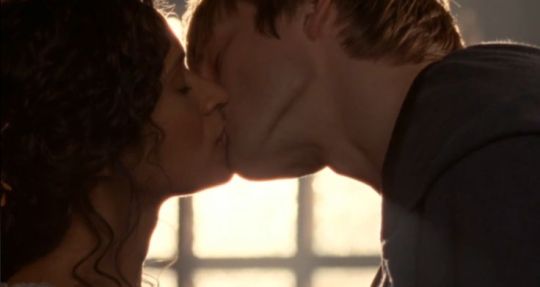
[50:00] Arthur and Gwen’s “love theme” was originally written by Rohan for Lancelot in episode 1x05 (note: it can be heard towards the end of the episode, when Lancelot leaves Camelot). Rob and Rohan would often expand on each other’s themes while working on an episode, and this is what happened here, since it was Rob who worked on episode 2x02. Rob’s “little touch” to Rohan’s original cue was to put the violin “over the top”, to give it more of a romantic flavour for Arthur and Gwen’s kiss scene(***).
Originally, Rob had written something different for this scene – a piece with a choir. The producers decided they wanted to use the theme Rohan had previously written for Lancelot instead. “They got a lot of confidence out of making that call, because it was the right call – it worked really well.” Unfortunately, from that moment on the producers started to make more calls about changing some of Rohan and Rob’s music “a little too often”.
[55:00] To cite the most egregious example of this, Rohan says that at the end of S3, when Arthur retakes Camelot, the producers used as temp music a cue Rob had previously written, played on a loop. Later, they decided to keep this looped cue as the final music rather than the “beautiful” replacement music Rob had written for this scene, which – in Rob and Rohan’s opinion – would've worked much better. Rohan described the music for this scene as “one of the nicest things [Rob] had written in the series”.
[58:00] Rob wrote a few cues for S5 but, apart from those, the producers mostly re-used music from previous seasons.
Rohan’s Opinion of the Music in 2x02
[1:00:00] Despite "a couple of really great moments" and an iconic romantic theme, he doesn’t think 2x02 is his and Rob's best episode. He would give it a 2.5 out of 5.
Current Projects
[1:00:02] Rohan is now working on developing his own style of music, which he calls “epic steampunk” — “Steampunk is a genre with a very distinct visual style, but no one has really defined a musical style for it”. (He says the score for Loki leans towards it, a little bit.) You can look for Dr Ignatius Cole and the Brassknuckle Steampunk Sinfonia if you're interested – there are 3 albums out already, available on Spotify and Youtube.
Footnotes:
(*) A cue is the basic building block of a film score. Essentially, it is one complete piece of music from start to end, meant to play against a scene or sequence. (Source: x)
(**) It’s not in Fighting in the Market, although that’s the scene Rohan mentions right before saying this, but in the Meeting Arthur cue. Compare 0:44-0-54 to 0:48-1:00 in The Parade of the Ewoks. I suppose this was already obvious to someone familiar with the Star Wars soundtrack – in fact, someone already wrote a piece of meta about this and other similarities between Merlin’s OST and John Williams’s score. (I won’t link to it, but if you Google “Merlin soundtrack Star Wars tumblr” you should find it easily enough).
(***) The cues in ep 1x05 and 2x02 sound pretty much identical to me, to be honest, except the sound of the violin is a bit “louder” in 2x02? I suppose that’s what Rohan meant.
#at least one of you nerds must care about this#rob lane i need to hear the original arwen theme with the choir. rob. rob pick up your phone.#merlin#bbc merlin#merlin soundtrack#interviews#rob lane#rohan stevenson#misc.
23 notes
·
View notes
Text
youtube
Miklós Rózsa (1907-1995) - Violin Concerto, Op. 24: I. Allegro non troppo ma passionato ·
Robert McDuffie · violin
Yoel Levi · Atlanta Symphony Orchestra
2 notes
·
View notes
